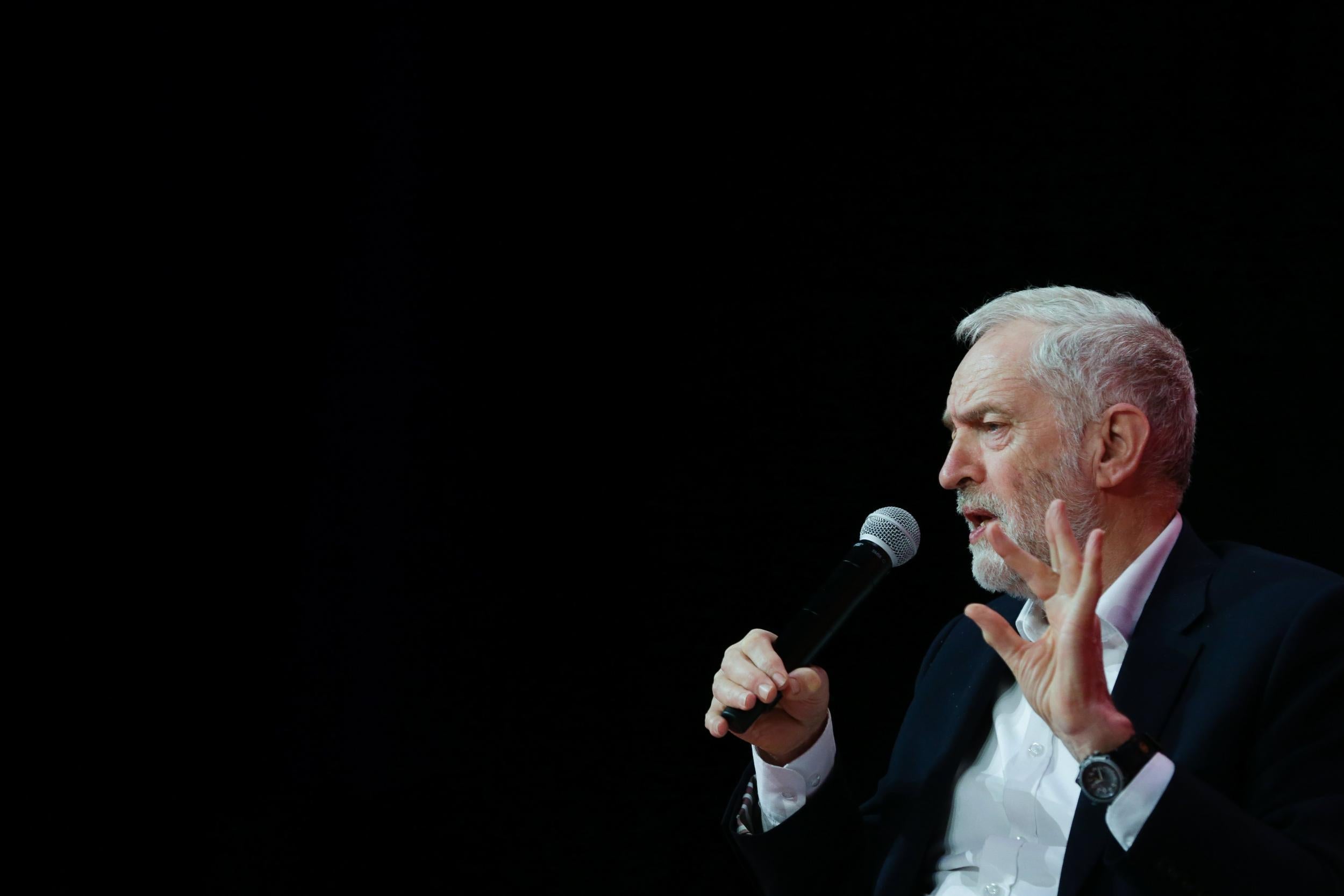There will come a time when Jeremy Corbyn will need to decide what Labour’s Brexit policy actually is
Labour’s attitude towards Brexit is driven – if not always consciously then on a deeper level – by a need to placate a contradictory voting base. Corbyn needs to make a choice about which voters to please, and which to let down gently

The problems with Theresa May’s Brexit position ought now to be insurmountable. Erect a customs border in the Irish Sea, and she loses her parliamentary majority. Put it in Ireland, and the negotiations break down and Scotland demands the same treatment. She could keep the whole of the UK in the Single Market and Customs Union, but that would lead to anarchy and rebellion in the Conservative Party. The Irish question is only one of the thorny issues that May will face, and a fresh general election already looks more likely by the day.
Labour’s winning strategy thus far has been to sit on every available fence, and to change the subject. At the snap election, the party leadership rightly calculated that it could win votes with a radical economic and social programme much more easily than fighting on the Tories’ terrain. Now, “keeping all options on the table” is about concealing real internal divisions as well as hedging Labour’s bets. Every part of the party – from the radical left all the way over the Blairite right – is split on immigration, the Single Market, and a fresh referendum.
In the weeks and months that come, calculation will have to give way to clarity. The farce of the Brexit negotiations will only escalate inside the Westminster bubble. For most of the public, it will be a tedious cloud of gaffes, set piece speeches and establishment incompetence. Labour must take the narrow, procedural debate over Brexit and turn it into a debate about the kind of country we want to create. By the time that Theresa May puts the final deal to a vote in Parliament, Labour must be able to vote against it with a clear alternative in the public imagination.
To build that alternative, Labour must stop triangulating on the issues at the core of Brexit. Despite the largely pro-immigration tone of the election campaign, and Jeremy Corbyn’s consistent record of standing up for migrants and refugees, the 2017 manifesto committed to ending free movement. Unless this policy is changed, Labour will go into the next election promising the biggest extension of border controls in recent British history.
Putting forward a progressive immigration policy might not seem easy in the current climate. But the alternative is to give credence to the narrative that migrants are to blame for falling living wages, the housing crisis and crumbling public services. This narrative is kryptonite to the left – it directly undermines the idea that the culprits are the political and economic elite, and their religious attachment to privatisation and austerity. This anti-establishment narrative, which also has the benefit of being the truth, is the core of Labour’s current electoral success.
Labour’s attitude towards Brexit is driven – if not always consciously then on a deeper level – by a need to placate a contradictory voting base. The big youth surge that almost won Labour the 2017 election is weighed against a large minority of Labour voters who voted for Brexit, many of them with conservative views on migration and social issues. This alliance can endure, but Labour’s fudge on Brexit cannot.
The Labour Party under Jeremy Corbyn is by a long way the most successful left of centre party in Europe. Its success is built on authenticity and radicalism. In contrast to its centrist counterparts, Labour has not attempted to put forward a programme that most people might agree with; it lays out a vision of hope and solidarity, and brings voters with it even if they disagree with its stance on issues like defence or foreign policy. Voters aren’t stupid – Labour can afford to have an argument with some of its core voters about immigration or a second referendum if it can offer them well-paid jobs and investment as well.
The crisis over the Northern Irish border has demonstrated the objective limits of the Tories’ hard Brexit agenda, and will push the centre ground of the debate significantly towards the whole the UK remaining in the Single Market. Momentum behind the campaign for a referendum on the final deal will now only grow, and demographic changes alone should mean that Remain has a clear majority by March 2019.
Labour must of course be careful not to lump itself in with the Remain establishment that lost the first referendum, but it will have to begin to pick a side. Sooner rather than later, we may find that the most radical position may also be the most electable – though, after the past few years in British politics, we already knew that.

Join our commenting forum
Join thought-provoking conversations, follow other Independent readers and see their replies